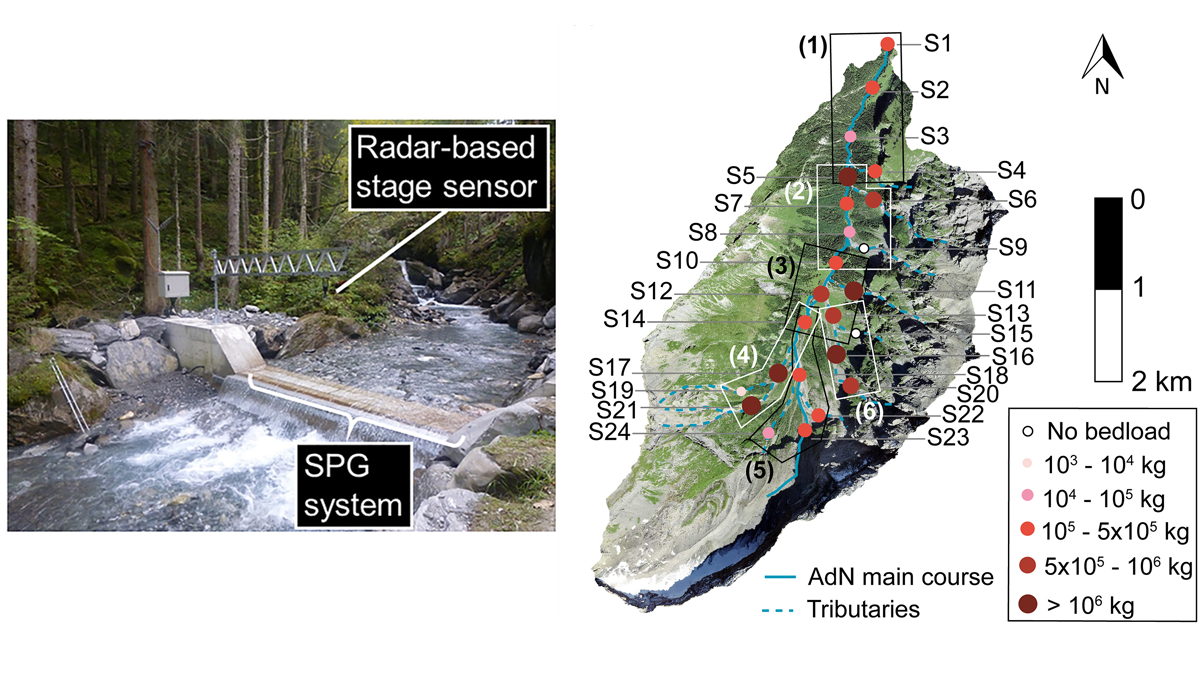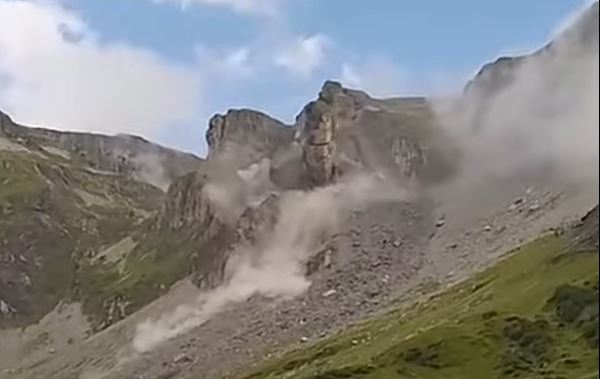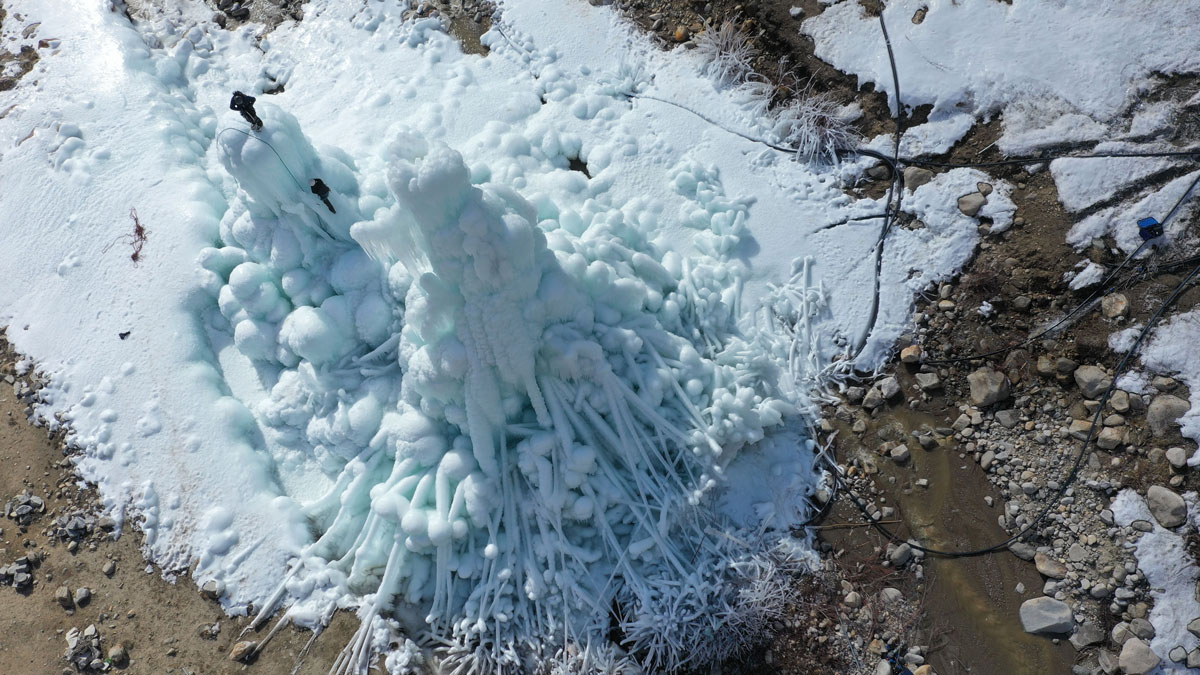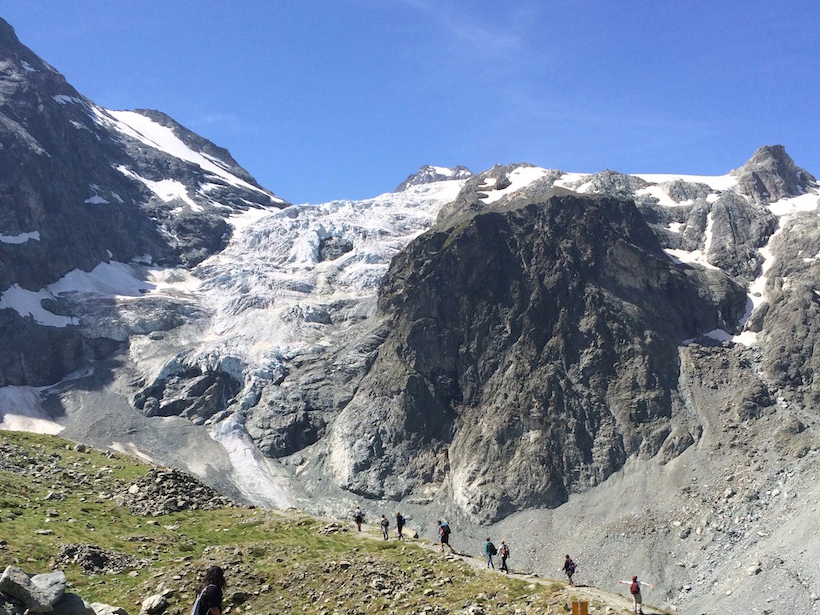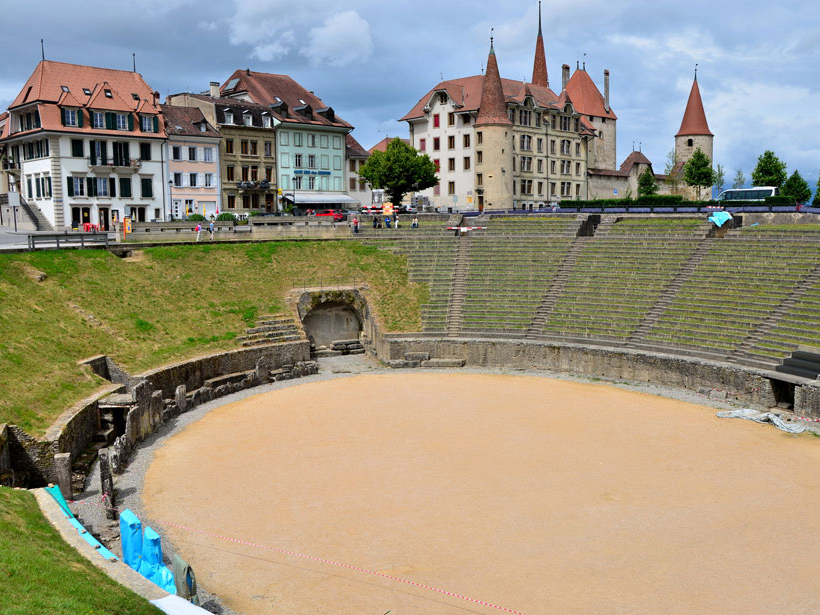Bedload sediment, transported throughout an alpine catchment by a flood, was remotely tracked in detail by analyzing the ground vibrations recorded by a network of 24 seismic sensors.
Switzerland
Bisisthal: a one million tonne rock slope collapse in Switzerland
On 30 July 2023 a one million tonne rock slope collapse occurred close to Bisisthal in Switzerland. It was captured on video.
Scientists Just Measured a Debris Flow in Unprecedented Detail
This research team used a laser sensor originally designed for autonomous vehicles to track debris flow surges.
How to Bend Lightning with a Laser Beam
For the first time, scientists have redirected lightning using a laser beam. And that’s just the start of what’s possible.
Ice Towers May Hold Promise—and Water—for Some Cold, Dry Places
A new study that cues into the formation of ice cones for storing glacial meltwater reveals how the structures can be built more efficiently and which climatic conditions work best.
Mountains Sway to the Seismic Song of Earth
The Matterhorn in the Swiss Alps is in constant motion, gently swaying back and forth about once every 2 seconds.
Decadal Changes in Glacial Discharge in the High Alps
A new statistical analysis of daily, glacial runoff cycles offers a unique way of examining how Alpine glaciers have responded since the onset of rapid regional warming in the 1980s.
Ancient Romans Polluted Their Lakes Just Like We Do Today
Sediments from a lake in Switzerland reveal that ancient Romans triggered dead zones caused by the runoff of nutrients. Sound familiar?
Peering Beneath the Powder: Using Radar to Understand Avalanches
High-resolution radar images from Switzerland’s experimental test site show that snow temperature is a key factor in classifying avalanche behavior.
How the Micrometeorology of Alpine Forests Affects Snowmelt
A field study in the Swiss Alps showed considerable spatial and temporal variability in forest air and surface temperatures, with implications for snowmelt models.

